Even the shortest war can cause an incalculable amount of pain and suffering. What can we say about the longest wars in human history, which lasted for decades and claimed millions of lives.
In some wars, soldiers fought their entire lives and never lived to see the end of a conflict that began before they were born.
10. The Great Northern War – 1700-1721 (21 years)
 The longest war in Russian history was fought between Sweden and a coalition of Northern European countries. And the "main prize" in it was the Baltic lands. It is curious that the formal reason for Russia's entry into the war was the "untruths and insults" that were allegedly committed against Peter I by the Swedes during his travels through Europe.
The longest war in Russian history was fought between Sweden and a coalition of Northern European countries. And the "main prize" in it was the Baltic lands. It is curious that the formal reason for Russia's entry into the war was the "untruths and insults" that were allegedly committed against Peter I by the Swedes during his travels through Europe.
The war ended with Sweden's defeat and the emergence of a new powerful player on the European geopolitical arena - the Russian Empire, with a strong army and navy. It was during the Northern War that St. Petersburg was founded, located at the point where the Neva River flows into the Baltic Sea.
9. Wars of the Roses – 1455-1487 (32 years)
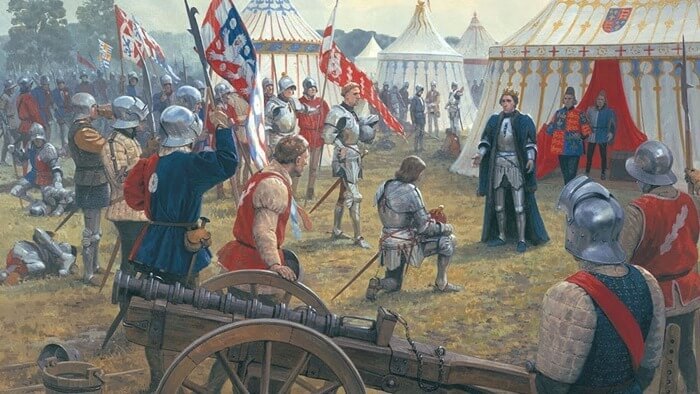 One of the aftermaths of the Hundred Years' War (which also ranks among the longest military conflicts in history) was the War of the Roses, which raged in Northern England. The throne of England was at stake, and roses were the distinguishing symbols of the warring parties.
One of the aftermaths of the Hundred Years' War (which also ranks among the longest military conflicts in history) was the War of the Roses, which raged in Northern England. The throne of England was at stake, and roses were the distinguishing symbols of the warring parties.
King Henry VI was a weak and unhealthy ruler, with various factions of the court vying for power. The king sometimes went mad, which did not add to his popularity or credibility.
The legitimacy of Henry's reign was challenged by Richard, Duke of York. The House of Lancaster, from which Henry came, and Richard's House of York fought for three decades until the Lancasters finally won.
And Henry Tudor, from a side branch of the House of Lancaster, married Edward IV of York's daughter Elizabeth, thus uniting the two warring houses. Thus was founded the Tudor dynasty, which remained on the throne until 1603. But that, as they say, is another story.
8. Banana Wars – 1898-1934 (36 years)
 A long series of conflicts in various Latin American countries, the so-called "banana wars," began in 1898 with the U.S. intervention in Cuba as part of the Spanish-American War. It ended only in 1934, when President Roosevelt withdrew troops from the island of Haiti.
A long series of conflicts in various Latin American countries, the so-called "banana wars," began in 1898 with the U.S. intervention in Cuba as part of the Spanish-American War. It ended only in 1934, when President Roosevelt withdrew troops from the island of Haiti.
American forces (primarily Marines) defended U.S. interests not only in Cuba, but also in Honduras, Haiti, Mexico, Nicaragua, and the Dominican Republic. Most of the conflicts were waged to protect American commercial and economic interests, especially fruit exports.
7. Cold War – 1946-1990 (44 years)
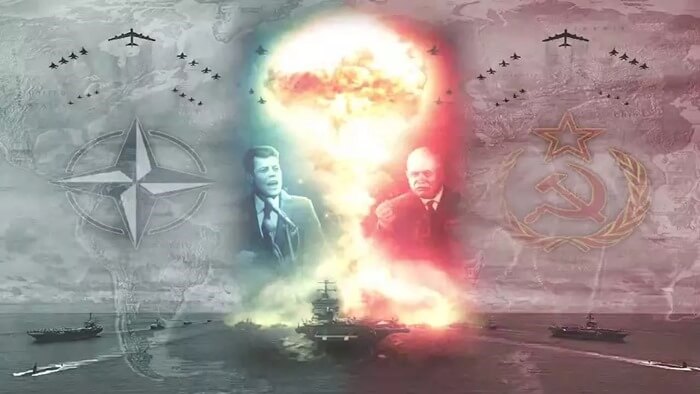 This confrontation between the USSR and the USA was not a military conflict in the international legal sense of the word. It was a confrontation between two ideologies – socialist and capitalist. And although the two countries did not fight each other on the battlefield, they actively intervened in conflicts around the world to create and maintain spheres of influence.
This confrontation between the USSR and the USA was not a military conflict in the international legal sense of the word. It was a confrontation between two ideologies – socialist and capitalist. And although the two countries did not fight each other on the battlefield, they actively intervened in conflicts around the world to create and maintain spheres of influence.
Both sides waged proxy wars against each other in Korea, Vietnam, and other countries, financed rebellions and revolutions, developed increasingly powerful weapons, and in 1962 the world stood on the brink of nuclear war. The Cold War ended just before the collapse of the USSR in 1991.
6. Greco-Persian Wars 499-449 BC (50 years)
 All information about the Greco-Persian Wars is taken by scientists from Greek sources, as there are simply no other sources. It is known that military conflicts took place between the Persian Achaemenid Empire and the Greek city-states that were defending their independence.
All information about the Greco-Persian Wars is taken by scientists from Greek sources, as there are simply no other sources. It is known that military conflicts took place between the Persian Achaemenid Empire and the Greek city-states that were defending their independence.
In one of the longest wars in history, Athens defeated Persia, captured most of its territory, and the war ended with the Treaty of Callias. The Achaemenid Empire lost its possessions in the Aegean Sea, the Hellespont and the Bosphorus, and was forced to recognize the political independence of the cities in Asia Minor.
5. Burmese Civil War – 1948-2012 (64 years)
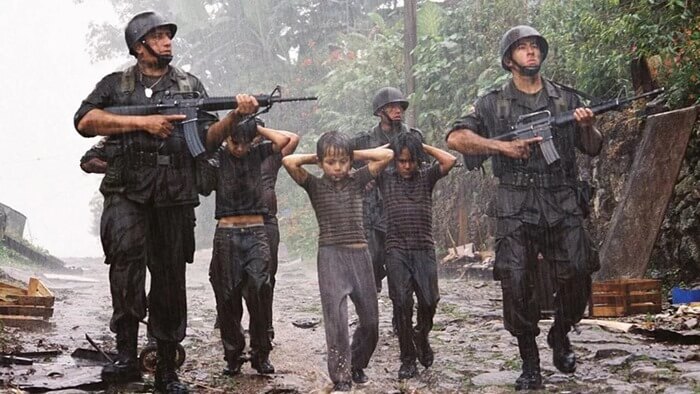 The longest civil war in modern history was fought between the Burmese government and communist forces, which included several ethnic minorities. The war is also called the Karen Conflict, after one of them (the Karen).
The longest civil war in modern history was fought between the Burmese government and communist forces, which included several ethnic minorities. The war is also called the Karen Conflict, after one of them (the Karen).
Over decades of fighting, numerous war crimes by the Burmese army have been widely documented, including the killing of civilians and sexual violence against women and girls.
Systematic attacks on ethnic minority civilians have forced some three million people to flee Burma, most of them to neighboring Thailand.
4. Dutch War of Independence – 1568-1648 (80 years)
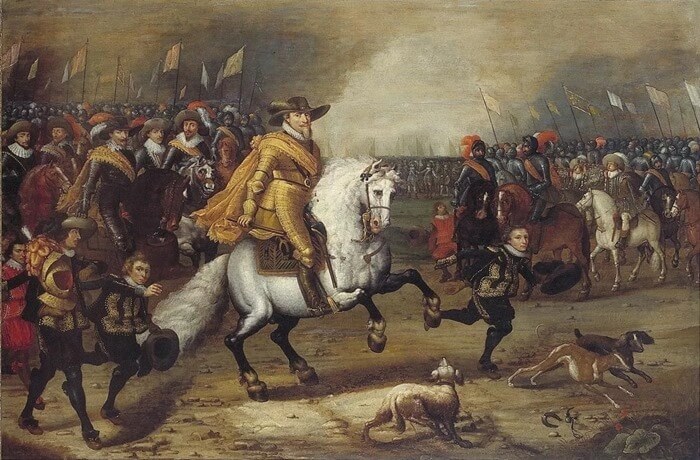 When the Dutch Revolution began, Spain was one of the world's great superpowers. By the time it was over, so was the "Spanish Century."
When the Dutch Revolution began, Spain was one of the world's great superpowers. By the time it was over, so was the "Spanish Century."
Seventeen provinces fought for independence from Spanish rule, and their first leader was William of Orange. After William's death, he was succeeded as commander of the Dutch army by Maurice of Orange.
The Dutch War of Independence (aka the Eighty Years' War) was the defining conflict of its era. It ensured the triumph of the Reformation in northwestern Europe and, along the way, changed the geopolitics of the continent, giving rise to Europe's first modern republics.
3. The Hundred Years' War – 1337-1453 (116 years)
 One of the longest wars in world history was fought between England and France. Although it is called the "Hundred Years' War", it lasted for 116 years with four breaks. Strictly speaking, it was a series of military Anglo-French conflicts.
One of the longest wars in world history was fought between England and France. Although it is called the "Hundred Years' War", it lasted for 116 years with four breaks. Strictly speaking, it was a series of military Anglo-French conflicts.
The struggle was over English-controlled territory in France and control of the French throne. The rulers of England and France had been related for centuries, so the English claim to the French throne did have some merit.
The war ended with the English capitulation in 1453, after more than a century of bloodshed. The victorious French took almost all of England's holdings in France, beginning a long era in which England remained largely isolated from European affairs.
During the Hundred Years' War, an estimated 3.5 million people died.
2. Punic Wars – 264-146 BC (118 years)
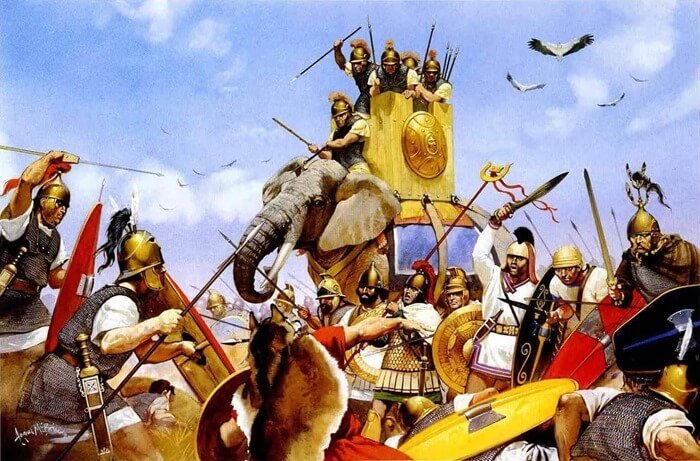 You may have heard the expression “Carthage must be destroyed” in history lessons at school. But do you remember why Carthage had to be destroyed? So that its main rival, Rome, could strengthen its position in the Western Mediterranean. This was the goal of the three Punic Wars.
You may have heard the expression “Carthage must be destroyed” in history lessons at school. But do you remember why Carthage had to be destroyed? So that its main rival, Rome, could strengthen its position in the Western Mediterranean. This was the goal of the three Punic Wars.
During the Second Punic War, one of the greatest generals in history managed to inflict a crushing defeat on Rome. Unfortunately for the Carthaginians, this victory did not mark the end of the war. After the Third Punic War, the Carthaginian region became part of the Roman Empire, and the city itself was burned to the ground.
1. Araucan War – 1536-1825 (289 years)
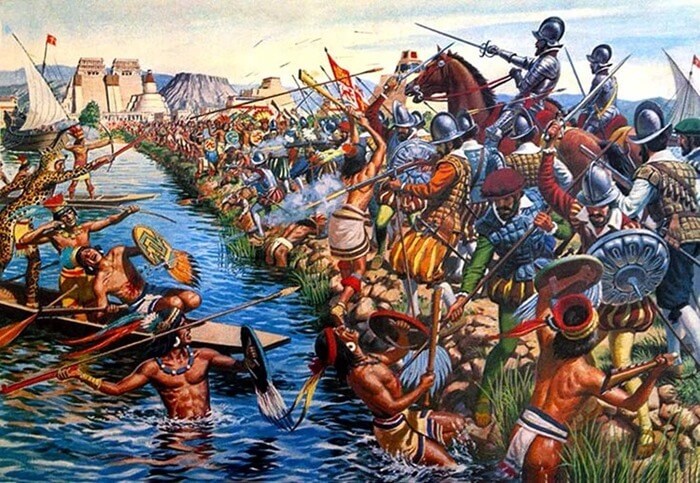 A series of irregular conflicts known as the Araucan War began in 1536 when the Creole population of the Spanish Empire attempted to colonize the Mapuche people of Chile. Spain encountered a strong army during its exploration of the Strait of Magellan and, although outnumbered, was able to kill thousands of Mapuche warriors due to its superior firepower.
A series of irregular conflicts known as the Araucan War began in 1536 when the Creole population of the Spanish Empire attempted to colonize the Mapuche people of Chile. Spain encountered a strong army during its exploration of the Strait of Magellan and, although outnumbered, was able to kill thousands of Mapuche warriors due to its superior firepower.
Despite numerous Spanish attempts to subdue the Mapuche, the people remained independent of Spanish rule. Fighting between them and the Spanish was common for almost 300 years, until Chile declared independence.
Peace was established on January 7, 1825 - but even then, the Mapuche were not integrated into Chilean society until their land was conquered in 1883. And some still protest Chilean rule.
The longest bloodless war in history – 1651-1986 (335 years)
 The longest war of all was a bloodless conflict between the Netherlands and the tiny Isles of Scilly, a 335-year war that began in 1651 during the English Civil War. The Dutch, seeing an opportunity to recoup some of their losses from royalist raids, immediately sent a fleet of twelve warships to the royalist base of Scilly to demand reparations. After receiving no satisfactory response from the royalists, Dutch admiral Maarten Tromp declared war on them on 30 March 1651.
The longest war of all was a bloodless conflict between the Netherlands and the tiny Isles of Scilly, a 335-year war that began in 1651 during the English Civil War. The Dutch, seeing an opportunity to recoup some of their losses from royalist raids, immediately sent a fleet of twelve warships to the royalist base of Scilly to demand reparations. After receiving no satisfactory response from the royalists, Dutch admiral Maarten Tromp declared war on them on 30 March 1651.
And already in June of the same year, the Dutch forced the Royalist fleet to surrender. The Dutch fleet did not fire a single shot. Due to the ambiguity of declaring war by one nation against a small part of another, the Netherlands did not officially announce the conclusion of a peace treaty.
The Dutch ambassador only visited Scilly in 1986 to proclaim the end of 335 years of hostilities, joking that it was terrifying for the people of Scilly "to know that we could attack at any moment".
The longest series of wars in history - 452-1485 (1033 years)
The Anglo-Welsh Wars, fought between the Anglo-Saxons and the Welsh from the 5th to the 15th centuries, were the longest wars known to mankind.
They began with attacks on the Britons (called "Wealsc" by the Anglo-Saxons) by pagan Germanic tribes who colonised parts of the eastern and southern coasts of Britain, and continued until the late Middle Ages, when Wales was eventually conquered and annexed by England.
The finale of the Anglo-Welsh Wars was the Battle of Bosworth, during which the troops of the English King Richard III (the last of the House of York) were defeated by the troops of Henry Tudor of the House of Lancaster.








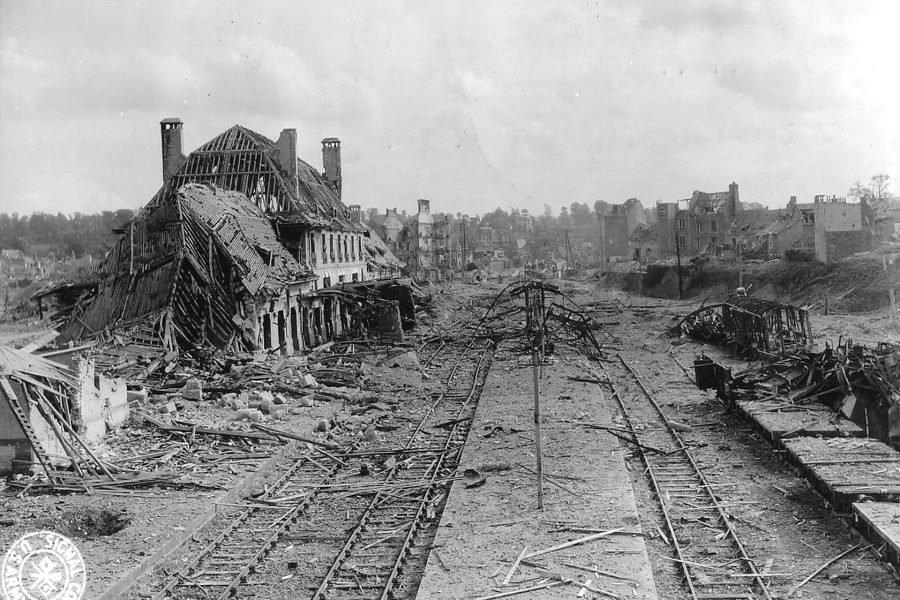





Оставить Комментарий